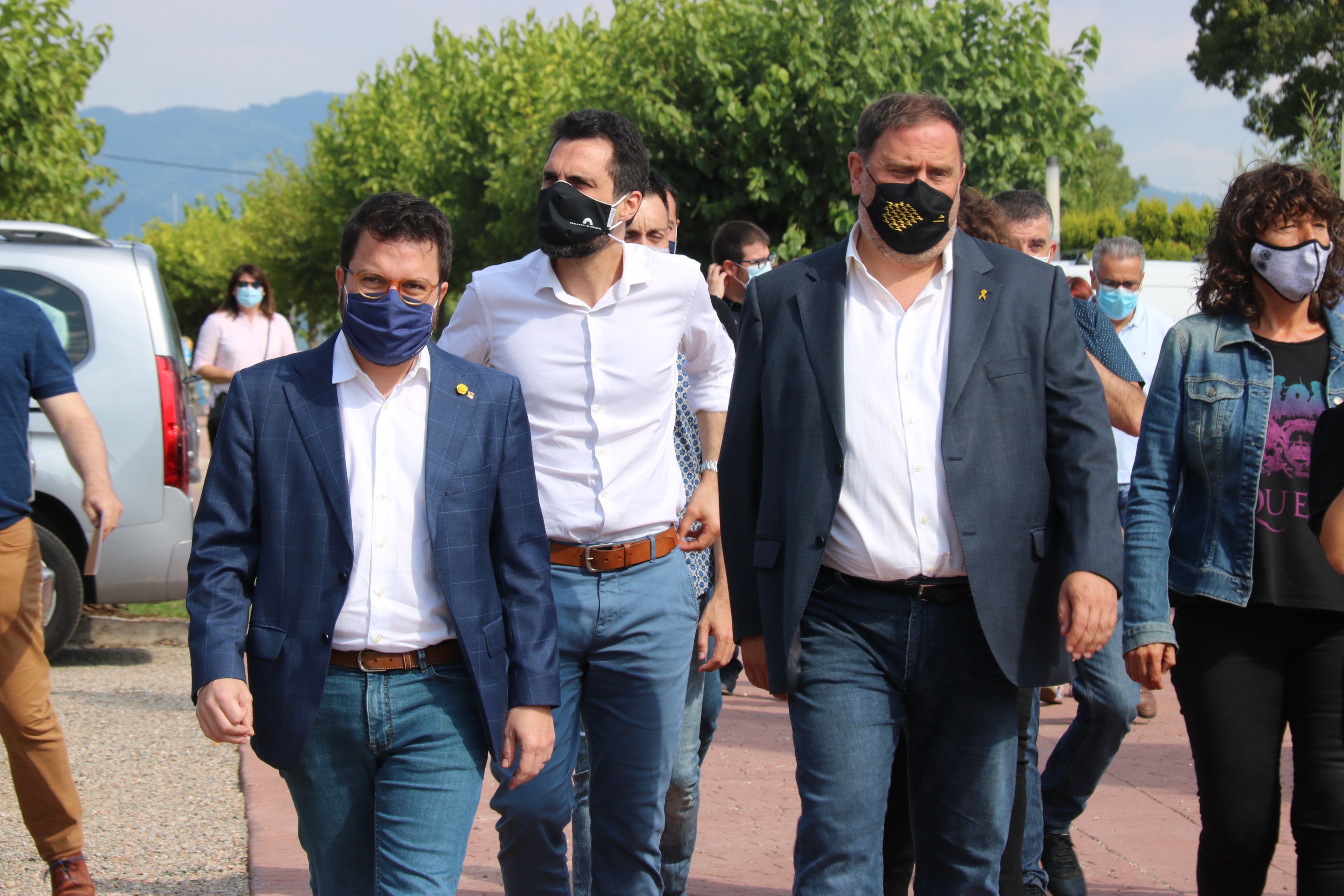The latest opinion poll from the Spanish public polling agency CIS looks ahead to the upcoming Catalan elections, due on 14th February. The survey includes a special sub-sample of Catalan respondents. The result: a landslide victory for the Catalan Republican Left (ERC), with more than 20% of the vote. It would be followed, five points behind, by the Catalan Socialists (PSC). The sum of the three main pro-independence parties (ERC, along with Together for Catalonia - JxCat - and the Popular Unity Candidature, better known as the CUP) would only yield 32.4% of the stated voting intention of those responding, although this proportion is calculated while leaving 13% of "don't knows" and 9.5% of non-voters in the equation. On the other hand, the four significant pro-unionist parties - the PSC, Ciudadanos (Cs), the Popular Party (PP) and Vox - would together reach 26.8% of the vote. According to the same poll, the Catalan leadership pair who led the government to the 2017 referendum, jailed vice president Oriol Junqueras and exiled president Puigdemont, are, in that order, the most preferred leaders, and Catalan independence is the main concern. The poll interviews were carried out between November 2nd-12th, with a sample of 1,400 Catalans.
These are the results before being "cooked" - adjusted to remove perceived sample biases, a process which can itself lead to accusations of introducing new biases. The question is straightforward: who would you vote for if Catalan parliamentary elections were held tomorrow? The most preferred party, by far, is ERC, with 20.5% of respondents giving the party their vote. Second would be the PSC, with 15.2%, and third the left-wing En Común Podem (Comuns), with 8.7%. Behind them would be Cs (8.2%), JxCat (8.1%), the CUP (3.8%), the PP (2.1%) and Vox (1.3%). For its part, the "rump" centre-right por-independence PDeCAT, left behind after the split with JxCat, would only get 0.3% of the vote, and would be expected to remain unrepresented in the Catalan chamber.
When voting intention and sympathy of undecided voters are taken into account, the result scarcely changes. The three pro-independence parties would all rise in poll standings. ERC would go up to 23.7%. JxCat would tie with Cs at 8.8% and the CUP would climb to 4.5%. The ratio of pro-independence to unionist voters would also remain within the same parameters: 37% versus 30%. The poll does not make a translation of these results into seats in the Catalan Parliament.
Junqueras and Puigdemont, preferred for president
As for the assessment of political leaders, only one gets a pass mark - the president of ERC and political prisoner, Oriol Junqueras, with 5.3 out of 10. Behind him, consistent with the intention to vote, are Spanish health minister and PSC politician Salvador Illa (4.9), the Comuns' Jaume Asens (4.6) and PSC leader Miquel Iceta (4.3) - an interesting result given that Illa is rumoured as a possible PSC candidate. These are followed by Carles Riera and Marta Rovira (4.1), Carles Puigdemont (4.0) and Quim Torra (3.8). The worst rated, Carlos Carrizosa (2.6) and Alejandro Fernández (2.9).
On the other hand, when asked who they would like to be president of Catalonia, respondents' preferences differed: Oriol Junqueras was still in the lead (19.1%), but second was president in exile Carles Puigdemont (15.2%). Behind him, the Socialist Miquel Iceta (13.8%). The result of the current vice-president and probable ERC candidate, Pere Aragonès, was surprising: 1.1%.
Independence, the main problem
What is the main problem that Catalans have today? According to the Catalans surveyed it is the independence of Catalonia, which 23.5% place as the "first-ranked problem" and 11.6% as "second". In total, 35.1%. Behind them (combining first and second choices) are the economic situation (32.8%), the coronavirus health crisis (24.2%), health (11.1%) and unemployment (10.2%).
“Average” management by Aragonès
On the other hand, the management of Pere Aragonès as acting president of the Generalitat of Catalonia is not very highly rated by respondents. More than a third - 34.5% - rate it as "average". By contrast, only 18.2% think it has been good or very good while 23.2% describe it as bad or very bad. Over a fifth of Catalans (21.4%) didn't know how to answer this question.

